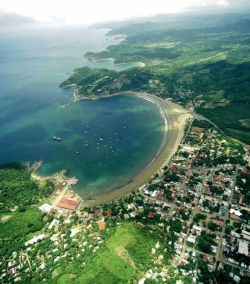The construction of these two new ports in the two extreme points of the canal will be determined by the construction of an extensive road network that will follow far and wide the canal and of an airport nearby the city of Rivas (in which is going to be created a series of tourist facilities and a free trade area).
This project, which at first seemed to create a worthy competitor to the Panama Canal, has actually risen controversy.
The first political, about the institutional weakness of the State of Nicaragua (in June of 2013, the President signed a "blank promissory note" granting the work to a business which, despite having reached an agreement, appears to haven’t carried out feasibility studies on the construction of the Canal yet.
The second is environmental, concerning the construction of three locks and the artificial lake designed to supply them, whose surface is expected to reach 400 km², a project that would result in deforestation (causing forced movement of entire native communities) and the crossing of two areas of the biosphere reserve protected by UNESCO.
These and other inconveniences have fueled an argument and a request to cancel the project by many agencies including the Forest of The World and some native communities which have turned to the Inter-American Commission of Human Rights.
This leaves the uncertainty of the future of this "giant river" of maritime transport, a canal divided between fact and myth ...



